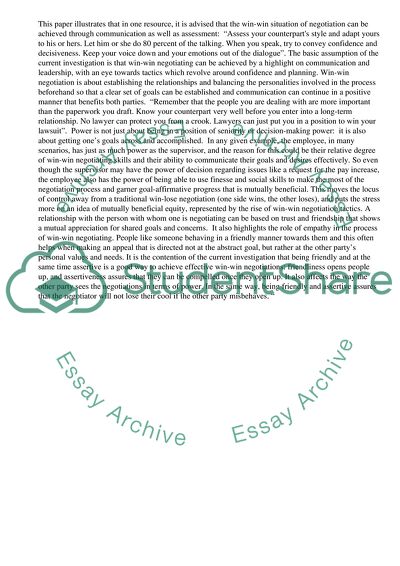Cite this document
(How to Get into a Win-Win Negotiation Research Paper, n.d.)
How to Get into a Win-Win Negotiation Research Paper. Retrieved from https://studentshare.org/business/1724497-how-to-get-into-a-win-win-negotiation
How to Get into a Win-Win Negotiation Research Paper. Retrieved from https://studentshare.org/business/1724497-how-to-get-into-a-win-win-negotiation
(How to Get into a Win-Win Negotiation Research Paper)
How to Get into a Win-Win Negotiation Research Paper. https://studentshare.org/business/1724497-how-to-get-into-a-win-win-negotiation.
How to Get into a Win-Win Negotiation Research Paper. https://studentshare.org/business/1724497-how-to-get-into-a-win-win-negotiation.
“How to Get into a Win-Win Negotiation Research Paper”, n.d. https://studentshare.org/business/1724497-how-to-get-into-a-win-win-negotiation.


